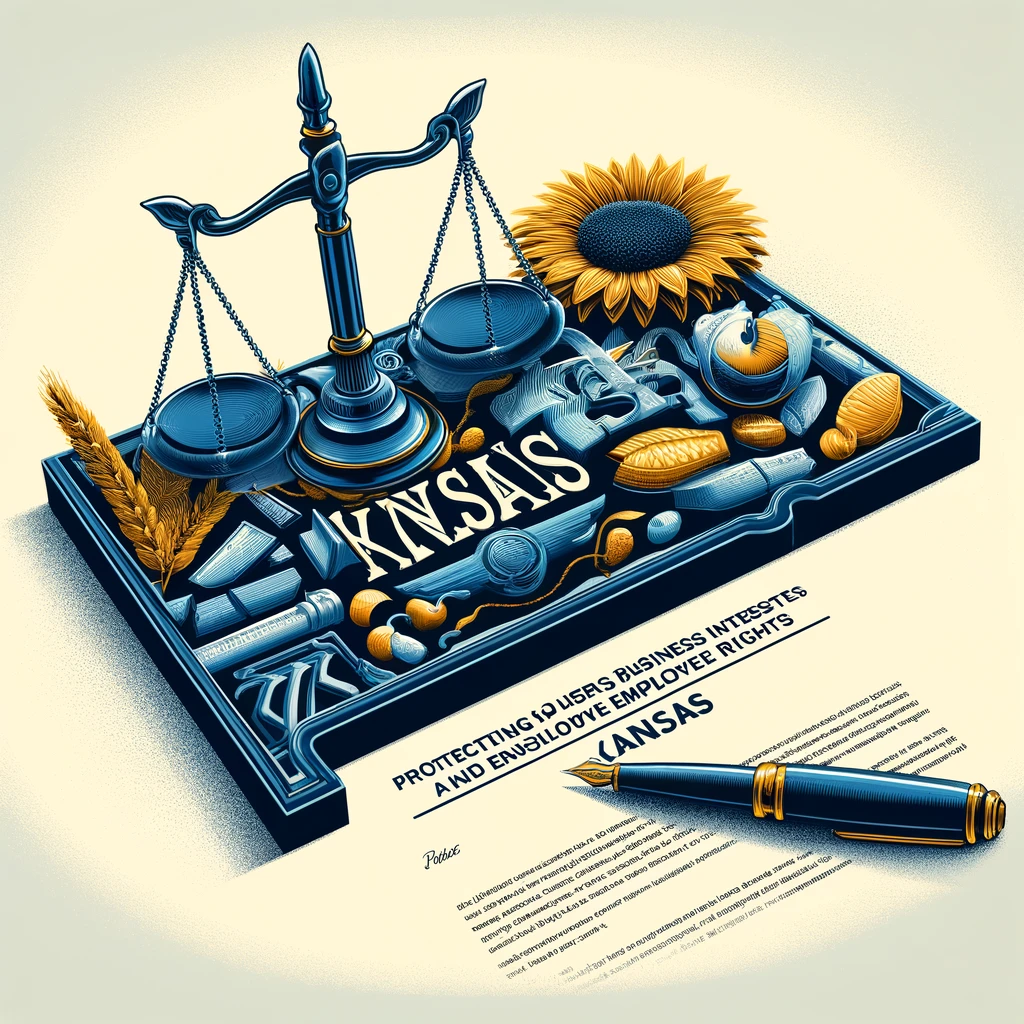Navigating Non-Compete Clauses in Kansas: A Comprehensive Guide
Non-compete clauses, essential components of employment contracts, aim to protect a company's interests by restricting employees from joining competing firms or starting similar businesses within a specified period and geographical area after leaving the company. In Kansas, as in other states, the enforceability of these clauses hinges on a balance between protecting business interests and ensuring an individual's right to work. This guide delves into the specifics of non-compete clauses in Kansas, offering insights into their legal framework, enforceability criteria, and strategic considerations for both employers and employees.

Understanding Non-Compete Clauses in Kansas
Non-compete agreements in Kansas are governed by state laws and judicial precedents, which stipulate that while these clauses are not favored, they can be enforceable if they are reasonable and necessary to protect legitimate business interests. The Kansas Supreme Court has set forth specific criteria for evaluating the reasonableness of a non-compete clause, focusing on its duration, geographical scope, and the restrictiveness necessary to safeguard the employer's interests.
Legal Framework
Kansas courts assess non-compete agreements under the doctrine of reasonableness, considering:
Duration: The time restriction should not exceed what is necessary to protect the employer's interests.
Geographical Limitation: The geographical scope should be limited to areas where the employee worked or had a significant presence or influence.
Scope of Activities Restricted: The activities restricted should be directly related to the employee's role and the company's operations.
For more detailed information on legal precedents, The Kansas Judicial Branch provides resources and case law databases.
Enforceability Criteria
In Kansas, for a non-compete clause to be enforceable, it must:
Protect a Legitimate Business Interest: Mere competition is not enough; the clause must protect proprietary information, trade secrets, or customer relationships.
Be Reasonable in Scope: Both in terms of duration and geographical coverage, aligning with industry standards.
Not Impose Undue Hardship on the Employee: It must allow the employee a fair opportunity to pursue their career.
Not Contradict Public Policy: It should not harm the public interest, for example, by restricting access to essential services.
Guidance on drafting enforceable non-compete agreements can be found through Kansas State University's Agricultural Law and Management resources.
Crafting an Enforceable Non-Compete Clause in Kansas
For Employers:
Clearly define what constitutes a "competitive" activity.
Tailor the geographical scope and duration to the specific role and industry standards.
Ensure the clause protects a legitimate business interest.
For Employees:
Understand the implications of signing a non-compete agreement.
Negotiate terms that are reasonable and do not overly restrict future employment opportunities.
Consider consulting with an employment lawyer to review the agreement's terms.
Legal and Ethical Considerations
While non-compete clauses can protect a business's interests, they should be used judiciously and ethically. Overly restrictive non-compete agreements can hinder innovation, restrict job mobility, and negatively impact the local economy. Both parties should strive for a fair balance that protects business interests without unnecessarily limiting an individual's career opportunities.

Create & Review Your Contracts 10x Quality and Ease
Lawyer-level AI handles all your contract needs, with real lawyers providing safeguarding support

Conclusion
Non-compete clauses are complex legal instruments that require careful consideration and crafting to ensure they serve their intended purpose without infringing on employees' rights or contravening public policy. In Kansas, as in other jurisdictions, the enforceability of these clauses rests on their reasonableness and necessity. Employers and employees must navigate these agreements carefully, ideally with legal counsel's guidance, to strike a balance that protects business interests and preserves workers' freedom to engage in their profession.
For further reading and resources on non-compete agreements and employment law, the U.S. Department of Labor and Cornell Law School's Legal Information Institute offer valuable information.

